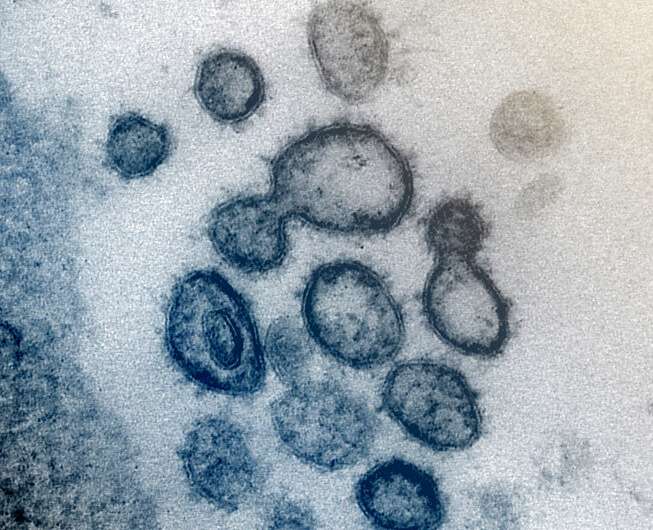Chemists working on drugs To treat COVID-19

In the wake of the novel coronavirus pandemic, Texas A&M University chemist Wenshe Ray Liu and his research team have focused their lab solely on searching for drugs to treat COVID-19.
The Liu group was the first to identify the antiviral drug remdesivir as a viable medicine to treat COVID-19 in a research study published in late January. The drug was originally developed in response to the 2014 Ebola pandemic.
As a chemical biologist specializing in medicinal chemistry, Liu's primary research target is cancer. But the lockdown of Wuhan and the first two diagnosed cases in the U.S. prompted him to refocus his lab on coronavirus.
"The motivation that drove us was the rush against time to find alternative medicines that might be put in use to fight against the virus when it spread to the U.S," Liu said.
The researchers are working to develop drugs that can prevent SARS-CoV-2—the virus that causes COVID-19—and other coronaviruses from replicating once inside human cells. They're also exploring how to counteract the effect of the viruses in human plasma.
Liu said his group has made significant progress in a very short time toward their ultimate goal: to push a COVID-19 drug candidate to preclinical trials and clinical testing before the pandemic subsides.
"There is sufficient scientific knowledge for this group of viruses, and we will be able to find cures," he said.
Remdesivir is being tested in at least five large-scale clinical trials around the world and also has been delivered to some patients, including the first known U.S. case confirmed Jan. 21 in Washington. That patient recovered after compassionate use of remdesivir.
While Liu said he remains convinced it's the right treatment, he cautioned that success shouldn't be viewed as a one-shot approach, given such a swift-moving target as COVID-19.
"Remdesivir is still the best and probably the only option to target the virus directly in patients," he said.
With the U.S. clinical trial set to finish this week, Liu is optimistic that the final results released next week will speak for themselves. However, with remdesivir poised to be the only approved drug to treat COVID-19, its large-scale use will occur, and some drug-resistant virus strains will evolve.
"At this stage, the scientific community needs to prepare for the worst and work to bring other treatment options to the forefront," he said, adding that while there have been positive results from tests of hydroxychloroquinine, additional options are needed.
When it comes to viral mutations and reports that multiple strains of the virus exist, Liu deferred to clinicians, but acknowledged that it has become more virulent.
"The infectivity of the original strain shown in Wuhan was not as high as what we have observed for the current strain in the U.S.," he said.
More information: Jared S. Morse et al, Learning from the Past: Possible Urgent Prevention and Treatment Options for Severe Acute Respiratory Infections Caused by 2019‐nCoV, ChemBioChem (2020). DOI: 10.1002/cbic.202000047




















